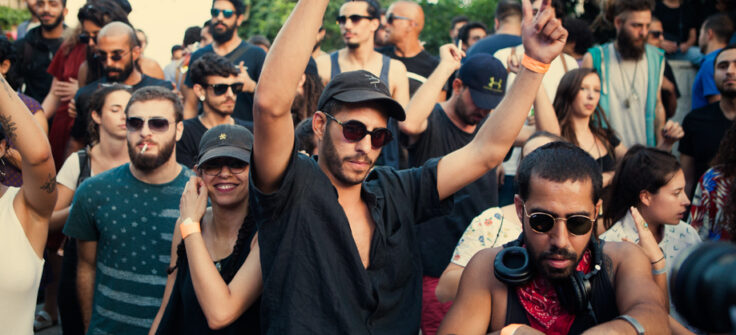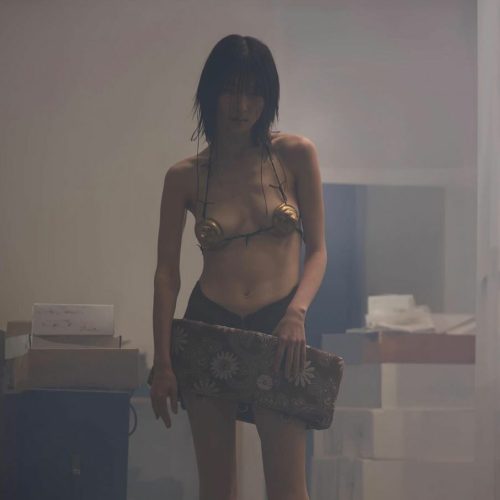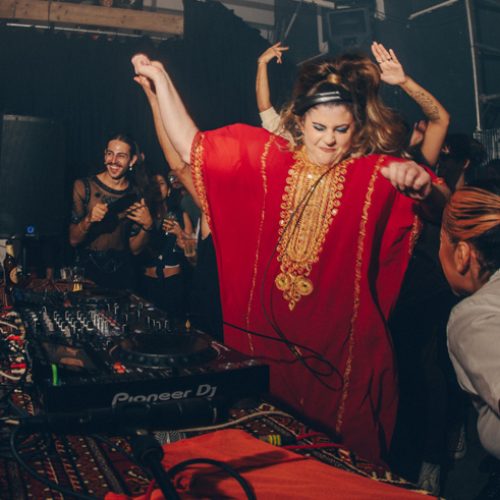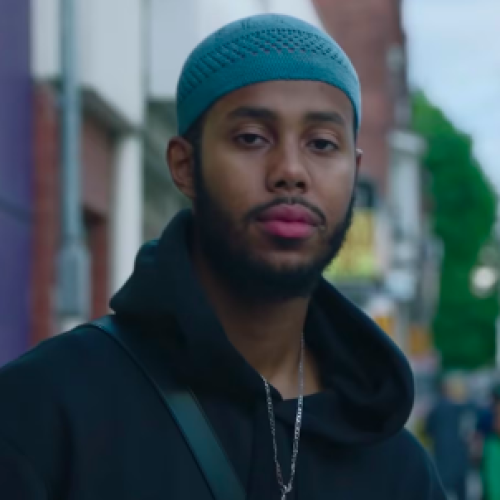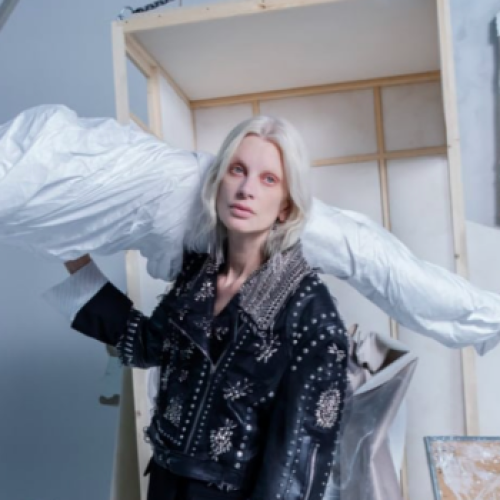While the rest of the world hops into Ubers to go blow off some steam at a party, Ramallah-based DJ, ODDZ literally puts his life in danger to get to the club.
It’s a sight you’ll rarely see. Despite this, the opening scene of Boiler Room’s latest documentary Palestine Underground sees him climbing up a makeshift wooden ladder and jumping into Occupied Palestine to make his way to a club in Haifa.
Sure, any climb means you might catch a few scratches, or at worst a broken bone—but in Palestine, this particular run up the ladder comes with an even greater risk. The seemingly trivial act puts him in jeopardy of becoming a target for Israeli authorities. But that’s a probability Palestinians like him risk every day.
And just a few minutes into the 27-minute documentary, it becomes clear that the act is just a stepping stone towards a larger political statement that ODDZ, and the Palestinians at the helm of the nation’s music scene are making. “[We’re] playing together, not only for the cause of partying” says Ayed of the Haifa-based collective Jazar Crew. “It’s to make the connection stronger with people in the West bank. It’s a re-birthing of the Palestinian community”.
Through music, Palestinians living in Occupied Palestine, and those living in the West Bank, among them ODDZ, Sama, Saleb Wahad, and Muqata’a, came together to spark what can only be described as a soft revolution—hosting parties where music is bringing people together in a way that’s anything but cliché.
And at a time where most conversations about Palestine speaks of violence, the documentary stands out for bringing forward the story of a different kind of radical action—a peaceful yet powerful Palestinian narrative that rarely gets told.
In case you haven’t watched it yet, MILLE gives you the five biggest takeaways from Boiler Room’s Palestine Underground.
Muqata’a—who’s name literally translates to ‘boycott’—and the rest of the Ramallah-based crew sample old Palestinian sounds as a form of reclaiming their culture.
After years of being denied entrance to Israeli clubs for being Palestinian, Jazar Crew opened their own bar, Kabareet in Haifa, becoming a staple establishment for the local music scene.
It wasn’t until eight years after her return to Ramallah, and multiple failed attempts that Sama was able to throw a successful party in her hometown.
And it was only thanks to Fidaa Kiwan—a woman who ran a club called Lawaiin—who brought Sama together with Jazar Crew.
Despite their growing audiences, Ramallah-based musicians still struggle to receive travel permission into Occupied Palestine for their gigs.





